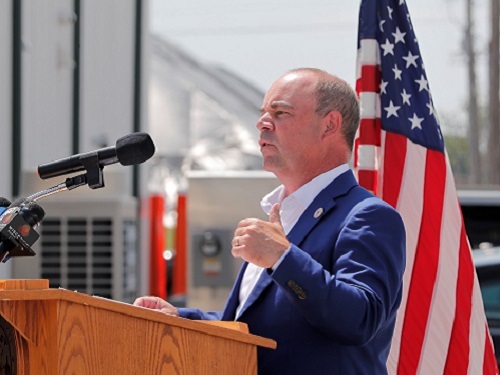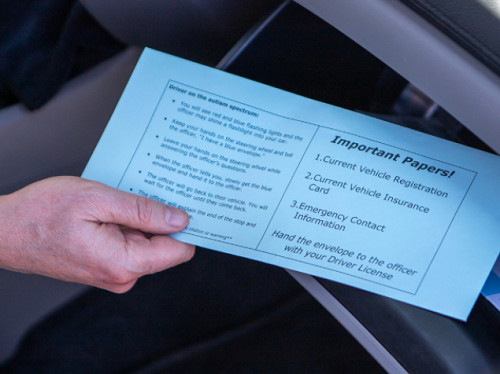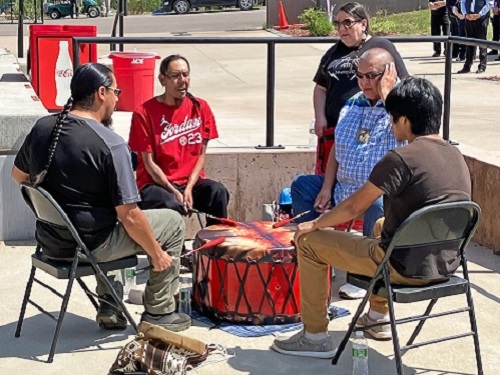The Wisconsin Department of Transportation noted that federal funding is helping it create a Tribal Technical Assistance Program or TTAP Center for 65 tribal nations across 30 states.
[Above photo by Wisconsin DOT]
The Traffic Operations and Safety Laboratory or TOPS Lab at the University of Wisconsin-Madison recently received a two-year $625,000 grant from the U.S. Department of Transportation and Wisconsin DOT said it will work with the school to create a TTAP Center to support transportation investments on tribal lands and other tribal initiatives related to training, technical assistance and technology services.
Upon renewal by the FHWA, the TOPS Lab could receive $300,000 each year for three years to continue the work of the TTAP Center. Due to the large geographic service area, the TOPS Lab has partnered with Lac Courte Oreilles Ojibwe University and New York State Local Technical Assistance Program Center housed at Cornell University.

“Wisconsin has the highest concentration of tribal communities in any state east of the Mississippi River,” noted Wisconsin DOT Secretary Craig Thompson in a statement.
“We are proud of our government-to-government relationships with the 11 federally recognized tribes in Wisconsin. This federal grant will help strengthen those partnerships and allow us to continue making strategic transportation investments on tribal lands,” he said.
“We’re excited to see how this federal funding can leverage Wisconsin as a leader to implement solutions to roadway safety on tribal lands not only in our state, but across 30 states,” Thompson added.
“This really underscores that we’re not just working within university or state boundaries but across the United States,” emphasized Andi Bill, manager of the TOPS Lab research program.
“We’re bringing high-quality research to the local level, and we’re very excited to work with our partners across the Tribal communities,” Bill said. “Wisconsin DOT has been an active leader in tribal coordination and we’re ready to add to some of the wonderful work that they’ve done.”
 States
States
Arizona DOT Launches ID Program for Autistic Motorists
April 26, 2024 States
States

